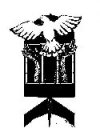
International Briefs
The prosecutor's appeal of Russian nuclear whistleblower Alexander Nikitin's
acquittal was to have been decided by the Russian Supreme Court on March
29, but the decision, hoped to be the final one in a long case of harassment
and persecution, was postponed, leaving Nikitin again in legal limbo in
a state where the rule of law apparently has innumerable exceptions. 
The rise of former KGB officer Vladimir Putin to the top of the Russian state has been accompanied by the scapegoating of environmental and human rights activists as agents under foreign control and engaged in domestic subversion. Greenpeace/Moscow's office was raided in March in the most visible recent example, as local authorities across Russia have been ordered to investigate environmental group's funding and activities. This atmosphere led to the formation this winter of United Against Harassment and for Better Society, a coalition of environmental and human rights campaigners in Russia.
The attitude has spread even to the Republic of Belarus, where Prof. Yuri Bandazevsky, a physician advocating for the victims of Chernobyl whose imprisonment on trumped up corruption charges was noted in the last issue, was released from prison December 27, but remains under house arrest in Minsk pending trial.
In Turkey, environmentalists campaigning against the planned reactor at Akkuyu met riot police when they staged a die-in in the middle of Istanbul's central square on February 29. Thirty people were arrested. In France, Greenpeace blocked the Cherbourg port terminal of Cogema, to obstruct the arrival of a load of nuclear waste at the state-owned nuclear fuel reprocessor.
